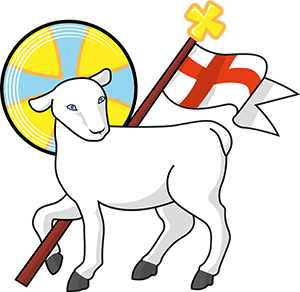Geography
At St John’s Primary School, our Geography curriculum is firmly grounded in the Early Years Framework and the National Curriculum, providing children with opportunities to explore, appreciate, and understand both their local environment and the wider world. Geography is taught through inspiring topics that nurture children’s natural curiosity and fascination with the world around them.
We want our pupils to develop skills in recognising, describing, explaining, comparing, and evaluating human and physical geographical features using precise technical language. Our aim is to inspire independent and evaluative thinkers who show empathy for how others live, developing awareness, respect, and curiosity for different cultures, societies, and the physical world.
Children are encouraged to ask questions, make links, and make sense of the world around them. They will have opportunities to work collaboratively and to engage in fieldwork, trips, and other experiences that bring geography to life. Supporting these aims are our Core Christian Values of Compassion, Creativity, and Courage, which underpin everything we do at St John’s and enable our children to achieve a bright future.
The National Curriculum for Geography ensures that all pupils:
-
Develop contextual knowledge of the location of globally significant places
-
Understand the key physical and human geographical features of the world
-
Become competent in key geographical skills
To achieve these aims, we deliver a geography curriculum that focuses on developing a strong sense of place, underpinned by core knowledge of facts, locations, and vocabulary. Our curriculum is carefully sequenced to allow children to build on their geographical knowledge and skills as they progress through school. Teachers make clear links to past learning, ensuring knowledge is revisited and embedded.
Children access our extensive school grounds and take part in field studies around Waltham Chase, gathering first-hand experiences to enhance their learning and deepen their understanding of the local area. These experiences enable them to make accurate comparisons with contrasting locations. Staff also share their own experiences of the wider world, inspiring children to recognise the many countries and places of interest beyond their immediate environment.
Our curriculum is enquiry-based, leading to high-quality discussion about the natural world and its processes.
-
In Early Years, children are introduced to simple map skills through stories and exploration of the school environment. They learn to recognise symbols and create their own maps.
-
In KS1, pupils develop knowledge of their locality, the United Kingdom, and the wider world. They compare the human and physical geography of Waltham Chase with contrasting hot and cold localities, using subject-specific vocabulary and geographical skills through both in-person and virtual fieldwork.
-
In KS2, cross-curricular outcomes in Geography are carefully planned, with strong links to English and other subjects such as History. For example, Year 6 pupils explore Ancient Greece, making meaningful connections between historical and geographical contexts.
By the time children leave St John’s, they will have developed the geographical knowledge and skills needed to explore, navigate, and understand the world around them and their place within it.
This will be evident through outcomes in Geography, History, and English books, which demonstrate a broad and balanced curriculum and show children’s acquisition of key knowledge. Progression is clear as children move through school, enabling them not only to meet the requirements of the National Curriculum but also to develop a deep appreciation of their local area and its place within the wider geographical context.
Children are prepared to become competent geographers in secondary education, equipped with the skills to ask questions, make connections, and think critically about the world. School trips and fieldwork provide further relevant and contextual learning, ensuring that geography is meaningful, engaging, and inspiring.
What our children say:
‘I liked it when we drew bird's eye views of the school.’
‘In year 6, we used maps to find out about all the rivers around Portsmouth that Henry VIII used.’
‘I liked finding the Mr men with my map.’
‘I enjoy it, I like learning about the world around me.’
Useful websites to improve your child's knowledge at home:
Fun online geography games for primary and secondary learners. - BBC Bitesize
